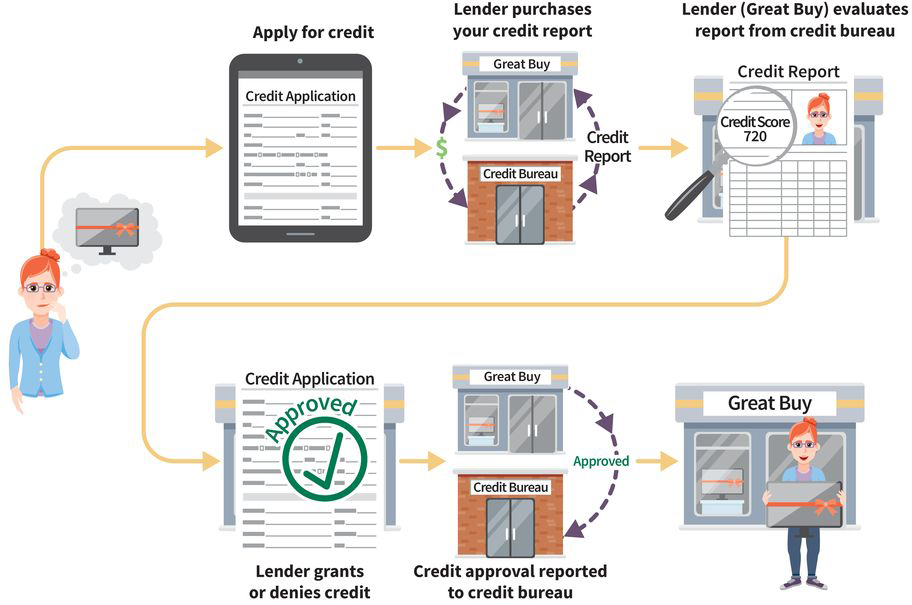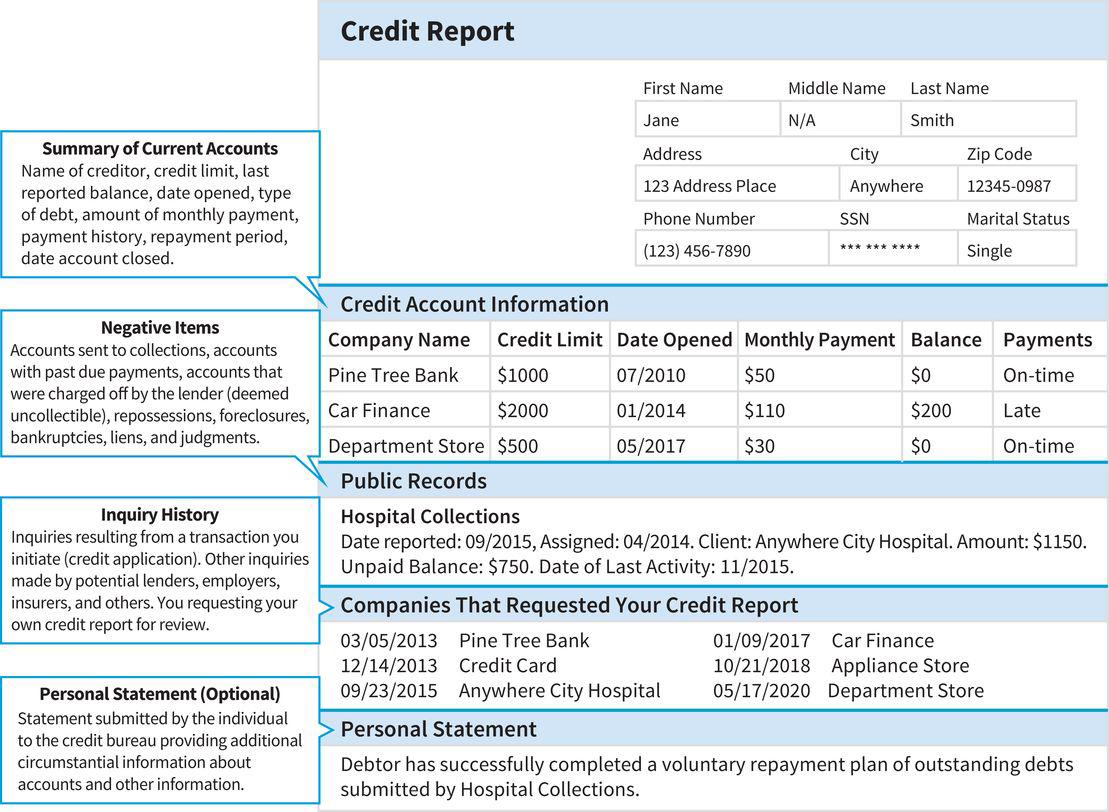Table of Contents |
According to Fair Isaac Corporation (FICO), the nation’s leading credit report and credit-scoring company, a credit report is a summarized accounting of your credit history. You’ll most likely have a credit report on file somewhere if you’ve taken any of the following actions:
| Actions That Positively Impact Credit Report | Actions That Negatively Impact Credit Report | |
|---|---|---|
|
|
Within the United States, there are three primary national credit bureaus: Equifax, TransUnion, and Experian. A credit bureau is a company that maintains housing and credit files on consumers. These are the firms that create and sell credit reports to organizations that have legal permission to view your information.
The following flow chart summarizes how credit reports are used as part of the credit-approval process.

The same process occurs every time you apply for a new loan. However, if you have made timely payments on other loans, there is an increased likelihood of getting more, and cheaper, credit in the future. But if you have missed payments or have been consistently late making payments, this will also be included in your credit report.
The information that goes into your credit report comes primarily from current creditors, which are firms that you have borrowed money from. It is possible, though, for other public data to find its way into your report.

Thankfully, the federal government limits by law who may access your credit report. As the law is currently written, employers are the only ones who must provide you with a disclosure stating that a credit report will be requested, and they must also obtain your written authorization to do so. Further, if employers use the information in your credit report to deny you a job, they must provide you with a copy of the report and give you a summary of your rights related to the report. Under current law, an individual, firm, employer, or governmental agency may request your credit report from a credit bureau for one of the following purposes:
So how do all of the different types of financial information actually get into your credit report? The answer may surprise you. The system that exists today is tied directly to your Social Security number. As you can imagine, it is possible for inappropriate and incorrect information to flow into your report. This can happen if a clerk accidentally inputs your Social Security number on another person’s account information, which causes his or her account information to be tied to your credit report. It can also happen as a result of fraud, which is when another person intentionally steals from you.
Assuming that the information in your credit report is accurate, you need to know that credit reporting agencies are allowed to maintain bankruptcy information in your report for 10 years. Other negative information about you can stay in the report for up to 7 years. Information that can stay in your report forever includes:
How do you find out what is in your credit report? The good news is that the Fair Credit Reporting Act (FCRA) requires Equifax, Experian, and TransUnion to provide you with a free copy of your report once every 12 months. You really ought to get a copy just to make sure that everything in your report is accurate. Credit reports can have errors. If you find an error on your credit report, you should contact the credit bureau to have the information corrected.
If you’re still in school, you should request a copy of your credit report to see if you have one. If you find out that you do not have a credit report, take steps now to establish a clean credit report before graduating. Remember, some employers use a credit report as an employment screen and not having a report can be just as bad as having one with negative information.
Technology: Skill Reflect |
One reason to request your free credit report is to guard against identity theft. Identity theft occurs when someone else uses your personal information, such as your name and Social Security number, to obtain credit. Rather than robbing you directly, these thieves take advantage of your creditworthiness by applying for loans in your name (e.g., credit cards), buying things, and then not repaying the loans. When the damage is done, the negative information is passed along to the credit bureaus in your name! In effect, you are left looking like a bad credit risk.
If you find that you are the victim of identity theft or a credit scam:
Source: This content has been adapted from Chapter 5.4 of Introduction to Personal Finance: Beginning Your Financial Journey. Copyright © 2019 John Wiley & Sons, Inc. All rights reserved. Used by arrangement with John Wiley & Sons, Inc.
Wiley and the Wiley logo are trademarks or registered trademarks of John Wiley & Sons, Inc. and/or its affiliates in the United States and other countries.